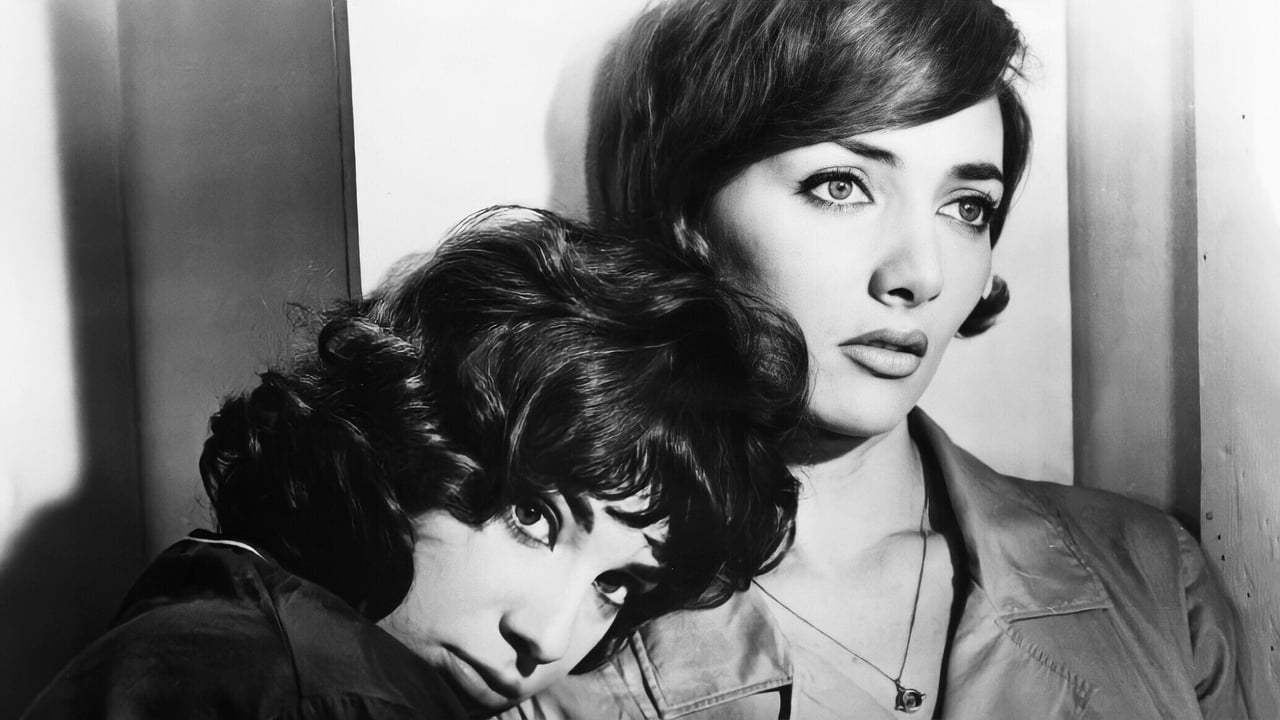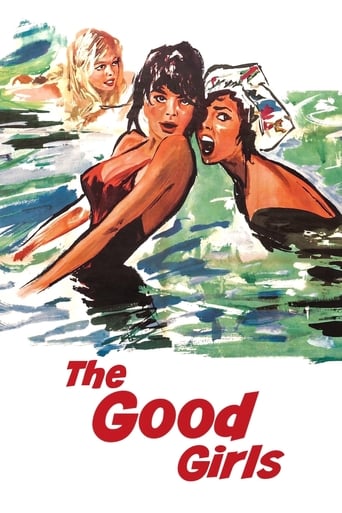Majorthebys
Charming and brutal
BoardChiri
Bad Acting and worse Bad Screenplay
Whitech
It is not only a funny movie, but it allows a great amount of joy for anyone who watches it.
Mehdi Hoffman
There's a more than satisfactory amount of boom-boom in the movie's trim running time.
jakob13
'Les bonnes femmes', more than a half century on, is a curious piece of 'nouvelle vague' cinema. Black and white, it lends a sadness to a grey Paris, at a time when France discovers adolescence and and yearnings of the young working class. Claude Chabrol tells the tale of four shop girls looking for love in the wrong places. And yet,Jacqueline, understatedly played by the delicious Clotilde Joano, oddly finds it, despite disappoint, as the camera fades out on the light in her eyes as she dances with an unknown man in a nightclub. The young Stephane Audran and Bernadette LaFont and Lucille Saint Simon are in the cast. Pierre Bertin doesn't quite steal a scene as the lecherous Monsieur Balin. And we see a Paris that is no more; a Paris prey to plastic bombs and terrorist attacks in a France entering its ninth year of war in Algeria.
Red-125
Les bonnes femmes (1960), directed by Claude Chabrol, was shown in the U.S. with the title The Good Time Girls. The film depicts the lives of four Parisian shopgirls. (I guess now we would call them retail clerks, but in 1960 they were shopgirls.) The women are all looking for romance, and they do no one any harm, but their lives are not filled with the glamor and excitement that the term "good time girls" evokes. They go to music halls, public swimming pools, and the zoo. They let men cruising by in cars pick them up. They stay out all night and stumble half asleep into work the next day. One of them is pursued and courted by a mysterious motorcyclist.All four young women are attractive. Three of them went on to have important careers in the French cinema--Bernadette Lafont , Clotilde Joano, and Stéphane Audran. (Audran later married director Chabrol,)Although Chabrol is a superb director, and the actors are talented, the film just didn't work for me. The young women had vacant lives, they had no aspirations or dreams of something different, and they had a naiveté that was sad rather than charming. This is a movie worth seeing if you have a particular interest in the French New Wave, in Claude Chabrol, or in the young actors who were not yet major stars. I wouldn't seek it out as casual viewing. We saw it on VHS, and it worked well on the small screen.
jotix100
We first encounter the women in the story late one night as they step out from a night club. Jane and Jacqueline are going home on foot. Two men jump into a white Cadillac and keep following them as one of them, Marcel, wants the two women to go to another night spot. We also see a somewhat mysterious man who gets on his motorcycle and tails the car and the women. This shadowy figure will remain a mystery until the last minutes of the film, yet, he will be connected with the women in ways that are not immediately known to the viewer.Jane, is a bold woman who seems not to be a stranger to sexual pleasures. Jacqueline, on the other hand has a romantic nature. After spending some time with Albert and Marcel in the cabaret, Jacqueline is bored and goes home. Jane, who goes with the men to their apartment, returns home in time to change to go to work. Ginette and Rita are the other friends, and co-workers, in a small appliance store. Louise, the cashier, is more or less in charge of the girls and she identifies herself with Jacqueline, who in spite of having come in late for her first day at the shop, seems to be a kindred soul.Ginette, who shares a flat with Jane, is a woman living a double life. She works in the shop, but is a singer who works in a theater that has variety acts. She doesn't want to let the other girls know what she does. Rita, the fourth friend, is engaged to a fatuous man who appears to be embarrassed to be introducing her to his parents.These four women appear to be living boring lives. Their only escape is the night life all around them. Jacqueline, who is approached by a delivery man at the shop for a date, refuses him. At the same time, that night, at a swimming pool she is saved from Marcel and Albert's horseplay with her in the water by the motorcyclist. This meeting leads to an unexpected turn of events for Jacqueline, who doesn't have a clue as to what is going to happen to her. A hint to Jacqueline's fate is comes later in the film, as she asks Louise about a "fetish" she carries with her.This film was not seen widely in this country after it was released. In fact, it remains an enigma why it was not discovered by film fans, the way it deserved. Claude Chabrol, the director, who also contributed to the screen play, gives the story a great staging. It's one of his works that most closely resembled a product of the New Wave movement as it took the cameras into the streets to show a slice of the lives of these four women that are so closely connected.There is a lot to admire in the way Mr. Chabrol designed this film. He got great support by the amazing cinematography of Henri Decae, one of the best in the French cinema. Even after more than forty years after this film made its debut, it has much to be admired in what Chabrol was able to accomplish with it. The character studies of these women living ordinary lives reveals the director knew them well.Clothilde Joano makes an impression as Jacqueline. Bernadette Lafont does wonders with her Jane. Stephane Audran, who went to star in a lot of films of her then husband, is quite effective as Ginette. Lucile Saint-Simon, is Rita, who had a short role. Ave Nimchi, has some good moments as Louise, the cashier. Jean-Louis Maury and Albert Dinan are seen as Marcel and Albert. Mario David plays Albert Lapierre, the motorcyclist.This film is a "must see" for all Claude Chabrol's fans
dbdumonteil
Chabrol,although labeled "Nouvelle Vague" has never forgotten to tell a story.It has made him the heir of a long tradition of the psychological French thriller (Clouzot,Duvivier,Decoin).Even his earlier efforts ("Le Beau Serge" "A Double Tour" "Les Cousins" ) had painstaking well-constructed screenplays .But "Les Bonnes Femmes " gives way beneath the weaknesses of the Nouvelle Vague and succumbs to their vices:a vague story,ponderous jokes,mediocre performances (mainly the male ones)and a lot of padding.At a pinch,one can save Clotilde Joano's character and the terrible fate which lays in store for her.But the main reason why you would watch this non-Chabrolesque film is Stephane Audran's presence: she would be his star when he peaked in the 1968-1973 years.The films he made then were his very own and had nothing to do with the N.V. fortunately.

